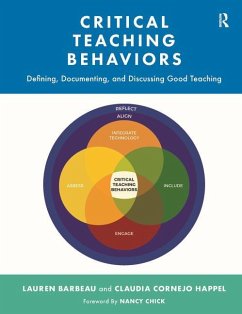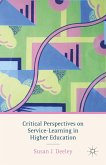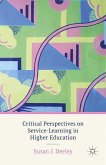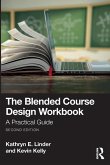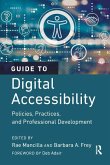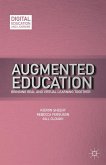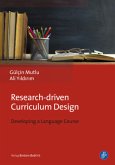What does "good" teaching mean, and how can we know it when we see it? Perhaps you have grappled with these questions at some point in your career, either as an instructor wanting to document or grow your teaching effectiveness or as a peer or administrator trying to provide guidance to or assess the teaching of others.This book serves three purposes: a condensed, evidence-based guide to effective teaching; a resource on creating a focused teaching narrative and teaching portfolio; and a toolkit that equips faculty to conduct peer observations, student midterm feedback, and productive conversations related to teaching.
The first part of the book offers a rich guide as to what constitutes effective teaching based on a comprehensive review of the research on instructional strategies and behaviors that promote student engagement, learning, and success. It includes practical advice flexible enough to accommodate disciplinary and contextual differences, recognizing that readers will want to adapt effective behaviors based on their values and dispositions.The opening chapters successively cover aligning classroom activities to learning goals; teaching inclusively to account for students' prior learning and diversity; creating an environment that promotes students' active engagement in learning and taking responsibility for their intellectual development; assessing students' progress and adjusting teaching accordingly; using technology effectively; and finally engaging in reflective self-assessment with feedback from peers and students to adjust and develop teaching skills.
In the second part of the book, the authors offer structured guidance on developing a focused teaching narrative, gathering peer and student feedback to support that narrative, and curating a portfolio to showcase exemplary practices and achievements. The insights and tools presented also equip readers to facilitate classroom peer observations and gather midterm student feedback. Overall, the second part of the book provides readers with a common language and tools to use when discussing teaching with peers and those who may formally or informally observe their teaching.
The book builds to providing the reader with a clear sense of the criteria and evidence needed to document their teaching for the purposes of annual review, promotion, or tenure.The now widely recognized Critical Teaching Behaviors (CTB) framework offers a holistic means of documenting and assessing teaching effectiveness by including a variety of evidence and perspectives. The comprehensive feedback and documentation toolkit aligned to the framework incorporates more of the instructor's perspective on their own teaching into the evaluation process and substitutes for or supplements student evaluations of teaching (SETs). Administrators will also find the CTB useful as a template and guide for the objective evaluation of teaching.In a single volume, this book offers faculty evidence-based guidance and encouragement to explore effective teaching strategies whether they are just embarking on their college teaching journey or are experienced instructors looking to explore new ideas. The CTB presents instructors a roadmap to both developing teaching skills and demonstrating achievements in promoting student learning to advance their careers. It is designed to be an interactive workbook. While readers can choose to read passively, they will get the most value from this book by completing the prompts and activities along the way.
Hinweis: Dieser Artikel kann nur an eine deutsche Lieferadresse ausgeliefert werden.
The first part of the book offers a rich guide as to what constitutes effective teaching based on a comprehensive review of the research on instructional strategies and behaviors that promote student engagement, learning, and success. It includes practical advice flexible enough to accommodate disciplinary and contextual differences, recognizing that readers will want to adapt effective behaviors based on their values and dispositions.The opening chapters successively cover aligning classroom activities to learning goals; teaching inclusively to account for students' prior learning and diversity; creating an environment that promotes students' active engagement in learning and taking responsibility for their intellectual development; assessing students' progress and adjusting teaching accordingly; using technology effectively; and finally engaging in reflective self-assessment with feedback from peers and students to adjust and develop teaching skills.
In the second part of the book, the authors offer structured guidance on developing a focused teaching narrative, gathering peer and student feedback to support that narrative, and curating a portfolio to showcase exemplary practices and achievements. The insights and tools presented also equip readers to facilitate classroom peer observations and gather midterm student feedback. Overall, the second part of the book provides readers with a common language and tools to use when discussing teaching with peers and those who may formally or informally observe their teaching.
The book builds to providing the reader with a clear sense of the criteria and evidence needed to document their teaching for the purposes of annual review, promotion, or tenure.The now widely recognized Critical Teaching Behaviors (CTB) framework offers a holistic means of documenting and assessing teaching effectiveness by including a variety of evidence and perspectives. The comprehensive feedback and documentation toolkit aligned to the framework incorporates more of the instructor's perspective on their own teaching into the evaluation process and substitutes for or supplements student evaluations of teaching (SETs). Administrators will also find the CTB useful as a template and guide for the objective evaluation of teaching.In a single volume, this book offers faculty evidence-based guidance and encouragement to explore effective teaching strategies whether they are just embarking on their college teaching journey or are experienced instructors looking to explore new ideas. The CTB presents instructors a roadmap to both developing teaching skills and demonstrating achievements in promoting student learning to advance their careers. It is designed to be an interactive workbook. While readers can choose to read passively, they will get the most value from this book by completing the prompts and activities along the way.
Hinweis: Dieser Artikel kann nur an eine deutsche Lieferadresse ausgeliefert werden.
"Barbeau and Cornejo Happel's Critical Teaching Behaviors offers a comprehensive, practice-based, growth-oriented framework and process for planning, documenting, observing, and improving teaching and learning. It is well-grounded in the SoTL literature and incorporates research on Students as Partners (SaP) in a way that I have not seen before in approaches to evaluating teaching. I use their CTB framework in my own teaching practice and have recommended my department adopt it for our peer observation process."
Trent W. Maurer, Ph.D., Professor of Human Development & Family Science, Georgia Southern University, USA
"Critical Teaching Behaviors by Lauren Barbeau and Claudia Cornejo Happel is an in-depth observation tool. The CTB has an extensive list of teaching behavior categories and observable teaching items. The inclusion of different teaching modalities is another exceptional component to this tool. This tool includes a multi-step process of materials review, observation, and debrief, providing a well-rounded opportunity to work together and learn from our own and others' teaching behaviors."
Gina Harmston, Faculty Development Center Lead Faculty Fellow &Teaching and Learning Faculty Fellow, Department of Public Health, Department of Kinesiology, California State University, Fullerton, USA; Susan R. Sy, Ph.D., Department of Psychology, California State University, Fullerton, USA; Erica Bowers, Ed.D., Director, Faculty Development Center, Director, Academic Technology Center, Professor, Department of Literacy and Reading Education, California State University, Fullerton, USA
"This book offers the rare combination of being timely, useful, helpful, and relevant by offering a means to answer questions about 'what is good teaching?' As faculty work to address the shifting needs of students by modifying their approaches to teaching, the Critical Teaching Behaviors framework provides an iterative, contextualized, reflection tool to guide thoughtful engagement with what it means to be an effective teacher. A must read for anyone serious about supporting student learning."
Natasha Jankowski, Higher Education Assessment Consultant
"The Critical Teaching Behaviors framework is evidence-based, well-organized, and user-tested. Its structured approach supports educators and administrators to talk systematically and thoughtfully about teaching while still creating space and flexibility for each educator to find the teaching approaches that work best for their discipline and personal style. Importantly, it is also designed to foster growth as a teacher. However, the best endorsement came from a graduate teaching fellow at my institution: 'This framework slaps!'"
Carol Subiño Sullivan, Assistant Director, Faculty Teaching and Learning Initiatives, Center for Teaching and Learning, Georgia Tech, USA
"It was a privilege to watch Lauren and Claudia create and test the CTB framework at our institution. Their passion and desire to help faculty provided my colleagues with a much needed comprehensive, yet personal and practical approach to good teaching. I love how the framework beautifully captures the encompassing nature of reflection. It transformed the way I document and assess my teaching and conduct peer evaluations. I cannot wait to share this book with all colleagues in higher education!"
Diana Botnaru, Professor and SoTL Commons Conference Chair, Georgia Southern University, USA
"A beautifully written answer to the age-old question of how to assess and document effective teaching. This is a must-read for faculty and educational developers alike."
Marina G. Smitherman, D.Phil., MPH, Director of the Center for Excellence in Teaching and Learning, Dalton State College, USA
"The question of what constitutes 'good' teaching is a perennial one in higher education, a reflection not of indecision, but rather a recognition that teaching and learning practices are highly sensitive to context, whether that context is disciplinary, institutional, or geo-political. In Critical Teaching Behaviors, Lauren Barbeau and Claudia Cornejo Happel do not provide us with a one-size fits all prescription for good teaching, but rather a flexible framework that can be adapted to a multitude of learning environments. Their framework is grounded in the considerable body of evidence-based practice that has emerged from the scholarship of teaching and learning (and related fields), while allowing space to imagine how our practice will evolve in the future."
Laura Cruz, Associate Research Professor, Schreyer Institute for Teaching Excellence at Penn State University, USA
Trent W. Maurer, Ph.D., Professor of Human Development & Family Science, Georgia Southern University, USA
"Critical Teaching Behaviors by Lauren Barbeau and Claudia Cornejo Happel is an in-depth observation tool. The CTB has an extensive list of teaching behavior categories and observable teaching items. The inclusion of different teaching modalities is another exceptional component to this tool. This tool includes a multi-step process of materials review, observation, and debrief, providing a well-rounded opportunity to work together and learn from our own and others' teaching behaviors."
Gina Harmston, Faculty Development Center Lead Faculty Fellow &Teaching and Learning Faculty Fellow, Department of Public Health, Department of Kinesiology, California State University, Fullerton, USA; Susan R. Sy, Ph.D., Department of Psychology, California State University, Fullerton, USA; Erica Bowers, Ed.D., Director, Faculty Development Center, Director, Academic Technology Center, Professor, Department of Literacy and Reading Education, California State University, Fullerton, USA
"This book offers the rare combination of being timely, useful, helpful, and relevant by offering a means to answer questions about 'what is good teaching?' As faculty work to address the shifting needs of students by modifying their approaches to teaching, the Critical Teaching Behaviors framework provides an iterative, contextualized, reflection tool to guide thoughtful engagement with what it means to be an effective teacher. A must read for anyone serious about supporting student learning."
Natasha Jankowski, Higher Education Assessment Consultant
"The Critical Teaching Behaviors framework is evidence-based, well-organized, and user-tested. Its structured approach supports educators and administrators to talk systematically and thoughtfully about teaching while still creating space and flexibility for each educator to find the teaching approaches that work best for their discipline and personal style. Importantly, it is also designed to foster growth as a teacher. However, the best endorsement came from a graduate teaching fellow at my institution: 'This framework slaps!'"
Carol Subiño Sullivan, Assistant Director, Faculty Teaching and Learning Initiatives, Center for Teaching and Learning, Georgia Tech, USA
"It was a privilege to watch Lauren and Claudia create and test the CTB framework at our institution. Their passion and desire to help faculty provided my colleagues with a much needed comprehensive, yet personal and practical approach to good teaching. I love how the framework beautifully captures the encompassing nature of reflection. It transformed the way I document and assess my teaching and conduct peer evaluations. I cannot wait to share this book with all colleagues in higher education!"
Diana Botnaru, Professor and SoTL Commons Conference Chair, Georgia Southern University, USA
"A beautifully written answer to the age-old question of how to assess and document effective teaching. This is a must-read for faculty and educational developers alike."
Marina G. Smitherman, D.Phil., MPH, Director of the Center for Excellence in Teaching and Learning, Dalton State College, USA
"The question of what constitutes 'good' teaching is a perennial one in higher education, a reflection not of indecision, but rather a recognition that teaching and learning practices are highly sensitive to context, whether that context is disciplinary, institutional, or geo-political. In Critical Teaching Behaviors, Lauren Barbeau and Claudia Cornejo Happel do not provide us with a one-size fits all prescription for good teaching, but rather a flexible framework that can be adapted to a multitude of learning environments. Their framework is grounded in the considerable body of evidence-based practice that has emerged from the scholarship of teaching and learning (and related fields), while allowing space to imagine how our practice will evolve in the future."
Laura Cruz, Associate Research Professor, Schreyer Institute for Teaching Excellence at Penn State University, USA

